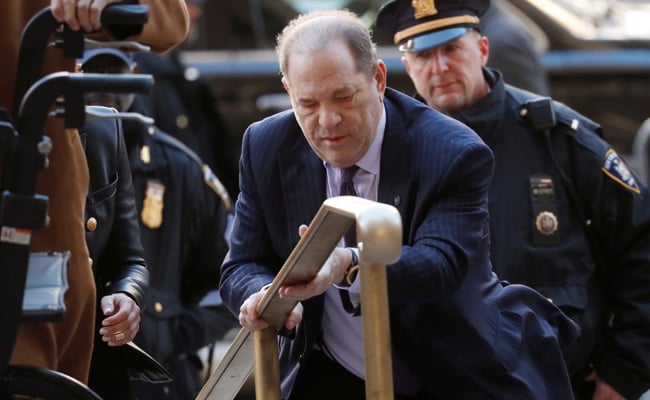Thursday’s ruling overturning Harvey Weinstein’s New York rape conviction.
New York:
Thursday’s ruling overturning Harvey Weinstein’s New York rape conviction provides the one-time movie mogul an opportunity at a brand new trial and calls into query what proof prosecutors can use in future intercourse crime circumstances.
Here’s a take a look at what occurred to the case, which helped outline the #MeToo motion, and what may occur subsequent.
WHY WAS WEINSTEIN’S CONVICTION OVERTURNED?
Weinstein, 72, was discovered responsible of raping one girl and sexually assaulting one other after each testified in court docket.
However a 4-3 majority of the New York Courtroom of Appeals, the state’s highest court docket, discovered that the trial decide mustn’t have permitted three different girls to testify that Weinstein had assaulted them as properly as a result of their allegations weren’t a part of the prison prices towards him.
Such testimony about “prior dangerous acts” is often barred by New York’s so-called Molineux rule, named for a landmark 1901 court docket case. The vast majority of the court docket discovered that the testimony by the three girls ran afoul of the rule and made the trial unfair.
WHY WERE THE OTHER WOMEN ALLOWED TO TESTIFY IN THE FIRST PLACE?
The Molineux rule is just not absolute. It holds that prosecutors can not use such testimony to show that the defendant has a “propensity” to commit crime, however they could use it as proof of motive or intent.
In Weinstein’s case, prosecutors persuaded the trial decide that the producer’s alleged prior sexual assaults confirmed that he knew his accusers didn’t consent to his advances, however that he supposed to power them into intercourse anyway.
Prosecutors believed the proof would assist disprove Weinstein’s assertion that the encounters had been consensual.
The Courtroom of Appeals, nevertheless, discovered that the testimony was merely proof that he had a propensity to commit rape and sexual assault, not of his motive or intent.
WHAT DOES THE RULING MEAN FOR WEINSTEIN’S CALIFORNIA CASE?
Weinstein was sentenced to 16 years in jail following a separate 2022 rape conviction in California, which he’s anticipated to enchantment, and the New York ruling has no direct impact on that case.
In reality, California legislation particularly permits testimony about prior dangerous acts in intercourse crime circumstances as proof {that a} defendant has a propensity to commit intercourse crimes. Such proof was utilized in Weinstein’s California trial, and the state’s legislation will make it tougher for his attorneys to problem on enchantment than in New York.
WHAT DOES THE RULING MEAN FOR FUTURE CASES IN NEW YORK?
In line with the vast majority of the court docket, little or no. Decide Jenny Rivera wrote within the majority opinion that the choice was primarily based on well-established New York legislation, and stated it was just like one other 1996 Courtroom of Appeals choice, Folks v. Vargas, vacating a rape conviction as a result of witnesses had been allowed to testify about earlier alleged rapes by the defendant.
Dissenting judges in Thursday’s choice stated the ruling would make it harder to prosecute intercourse crimes dedicated by individuals who know their victims and will have ongoing relationships with them, as in Weinstein’s case.
Decide Anthony Cannataro, who was among the many dissenters, known as it “an unlucky step backwards from current advances in our understanding of how intercourse crimes are perpetrated.”
One other dissenting decide, Madeline Singas, stated the choice would successfully finish the usage of prior dangerous acts witnesses in such circumstances and make it troublesome to show intent.
(Apart from the headline, this story has not been edited by NDTV workers and is revealed from a syndicated feed.)
